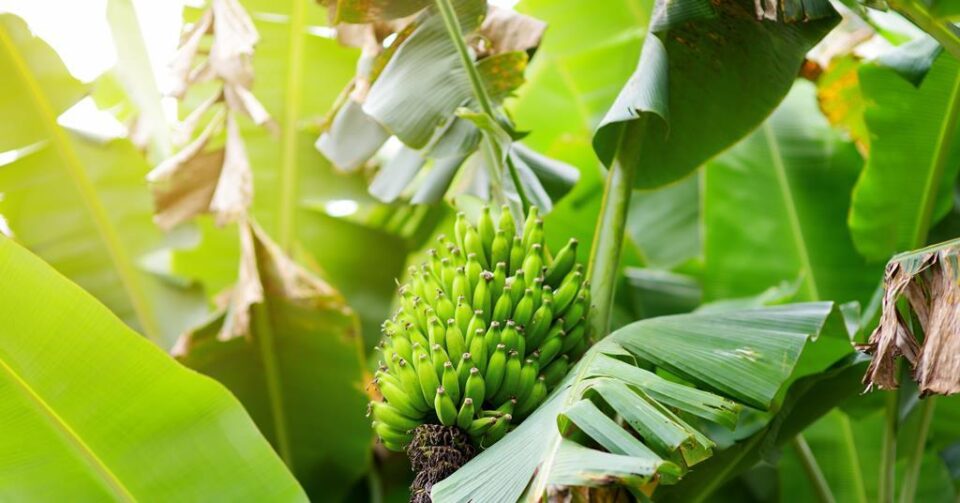Agritech firm Innoterra says it has identified a new variety of banana that is resistant to TR4, a disease that has devastated significant areas of production worldwide in the past few years.
Known as InnoGreen, the new banana is a mutant variety of Cavendish (Williams) that was first identified by Roberto Barnett, a veteran of the Filipino banana industry. It is said to show “remarkable resistance” to the diseases.
“It grows very fast and has very good distribution and separation in its leaves, which is very important when you are spraying to control disease,” Barnett tells Fruitnet.
InnoGreen also appears to offer sweeter-tasing fruit. “In the Philippines, we plant highland bananas from 600m up to 1,000m elevation, and they go up to 24° Brix, which means they can be sold at a premium in Japan, whereas for lowland bananas it’s only 17°,” Barnett notes. “This green variety goes up to 20° Brix in lowland, so it’s a very good, sweet banana.”
Read also: LatAm banana sector slams proposed new price cut by European retailers
Protection plus
At the same time, Innoterra has also unveiled a new biofungicide made from naturally occurring microbes, which it says can prevent the spread of harmful fungal infections.
Called BanacXin, the new biofungicide is pitched as a ‘two-in-one vaccine’ that can provide farmers a means to control both fusarium tropical race 4 (TR4) and black or yellow sigatoka.
During recent trials on plantations in India and the Philippines over the past seven years, this treatment was tested on various different pathogens that are known to attack and damage banana plants.
Now, with a provisional patent and various safety certifications in place, the task ahead of Innoterra is to scale up the biofungicide’s production from its initial industrial form and make it more widely available.
“We are setting up the fermentation labs, research and development, and production centre,” reveals Anup Karwa, director of Innoterra’s research department InnoScience. “We have already produced more than 10,000kg of product, which was shipped to the Philippines and then extensively evaluated by independent growers and third-party assessors.”
The use of the site materials is free if there is a direct and open for search engines hyperlink to a specific publication of the East-Fruit.com website.




